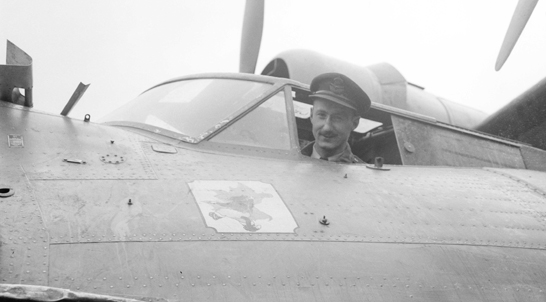
Birchall inside his PBY Catalina in Ceylon.
Britain’s Prime Minister Winston Churchill described the Imperial Japanese Navy’s attack on Ceylon (now Sri Lanka) as “the most dangerous moment in World War II”. He also went to describe Canadian Squadron Leader Leonard Birchall as the “Saviour Ceylon” for his brave reconnaissance mission.
“On April 4, 1942, Squadron Leader Birchall embarked in a Catalina flying boat for a daylong patrol southeast of Ceylon in search of Japanese presence in the Indian Ocean. By this time, Japanese forces had overrun Southeast Asia following their surprise attack on Pearl Harbor and conquest of Singapore, and strikes were expected against Britain’s Eastern Fleet and the strategic island of Ceylon.
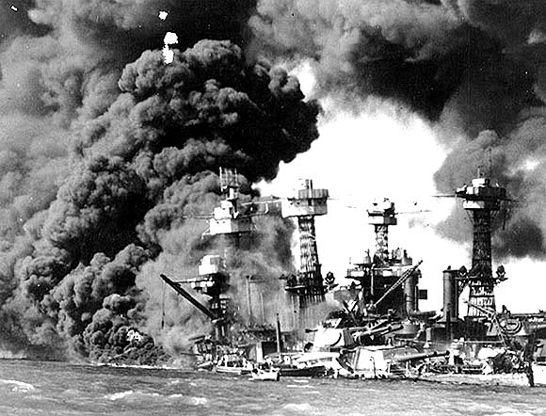
Pearl Harbour attacked a few weeks earlier.
Near the end of the patrol, a vast armada of Imperial Japanese Navy warships, including three carriers, was sighted steaming toward Ceylon, with the intention of surprising heavy surface units of the Royal Navy. Birchall and his crew sent signals giving the location, speed, course, and composition of the enemy fleet. The interception permitted weaker Allied naval units to avoid detection and enabled the island to defend itself.
SHOT DOWN, SPENT THREE YEARS AS POW
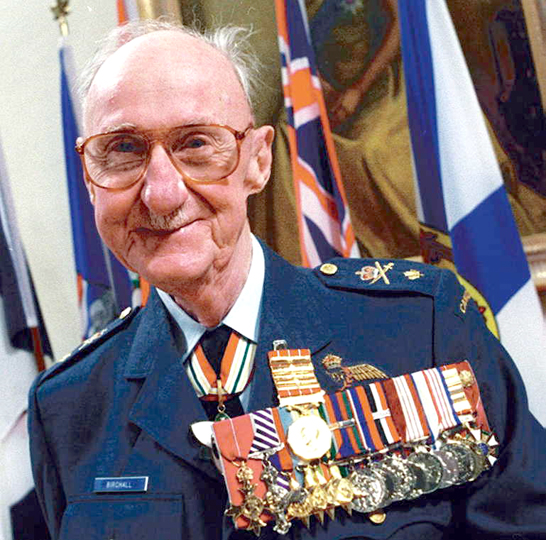
Canadian War Hero "Saviour of Ceylon" Birchall.
This heroic effort came at a considerable price for Birchall and the survivors of his crew, when they were shot down, captured and imprisoned for the remainder of the war. Stories abound of his selfless devotion to his crew, ensuring their safety and well-being, while ignoring his own suffering at the hands of his torturers. Once when he was asked, “What gave you the strength to endure three years as a POW, the beatings, the torture, the starvation?” to which he replied humbly, ‘I didn’t have time to think about anything else but keeping my men alive and looking after them.’”
“Birch” earned the Distinguished Flying Cross for his reconnaissance flight, and became an Officer in the Order of the British Empire for bravery and devotion to duty while a prisoner of war.
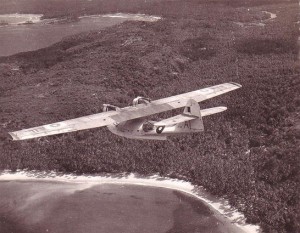
RAF Catilina over Koggala
Following the war, he held many senior RCAF appointments until retirement from the regular force in 1967, following which he was a senior administrator with York University, Toronto, until 1982. Until 1996 he was actively involved in the Air Reserve, held various honourary appointments and devoted himself to numerous public service initiatives.
In 2000, he was named a Member of the Order of Canada, and in 2001 he was a recipient of the prestigious Vimy Award. In May 2003, as Honourary Colonel for 413 Squadron Greenwood, Air Commodore Birchall was remembered when a training search and rescue boat was christened in his name “Saviour of Ceylon”.
In the words of one reporter from Kingston, “we shall not look upon his like again.”
FUNERAL
By Lt ( N ) Petie LeDrew
Birchall passed away in 2004.
KINGSTON, ON – Air Commodore Birchall’s funeral was held in Kingston on September 13, 2004. It was a beautiful, sunny day, a perfect day to remember one whose radiance and love of life was evident to all who met him. The church was filled to capacity. Although the occasion was a sad one, the atmosphere echoed the feelings that everyone had for “Birch” – profound respect for the man and his life, joy at having known him and infinite admiration for all he stood for.
Representatives from 413 Squadron, the Star of Birma Association, the Air Force Association of Canada, the Royal Military College of Canada and various other groups came to pay their respects to him one last time. Veterans and military members, past and present, also turned out in great numbers. Many, including the High Commissioner of Sri Lanka, Mrs. Geetha De Silva, paid tribute to him, expressing the deep gratitude of her people towards Air Commodore Birchall, whose profound friendship with the Asian nation remained to the day he died.
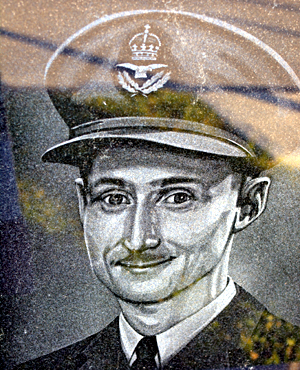
Air Commodore Birchall was an election observer to the Sri Lankan election in 1994.
Three Griffon helicopters from 427 Tactical Helicopter Squadron flew past the church as the Air Commodore’s casket was carried back to its waiting car by RMC cadets. This was a fitting final tribute, since Air Commodore Birchall had been the HCol for another of 1 Wing squadrons, 400 THS, for more than 20 years.
Air Commodore Birchall was a gallant gentleman to the end, and although he was fighting a losing battle with the disease that was to take him away, he carried out his last official military duty with typical dignity. At the beginning of July, a delegation from 413 Squadron flew to Kingston to ensure that their HCol could participate in the Squadron’s Change of Command parade, since he was unable to travel. Air Commodore Birchall was visibly touched and elated to be there, as were those who were on parade. Although in a wheel chair and in poor health, Air Commodore Birchall obviously took great pride in the uniform he wore for the occasion and the joy of being reunited with his squadron shone through. All those present were deeply touched by the bond shared by Air Commodore Birchall and his squadron.
Air Commodore Birchall’s passing is a great loss to us all. A true Canadian hero has gone but shall not be forgotten.
Air Commodore Birchall leaves behind his wife, Kathleen, two daughters, a son, a stepson and a stepdaughter, as well as several grandchildren and great grandchildren.
